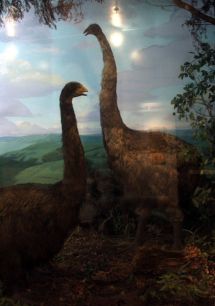Our Changing World for Thursday 2 October 2008
On This Programme
eDay: E = electronic waste. Day = weekend.
Do you have an old computer you don't know what to do with? Well this is the weekend to get it sorted! eDay is a nation wide initiative to caution people about the dangers of electronic waste (e-waste) and to offer an opportunity to recycle old computers and mobile phones in a responsible and environmentally safe way. Amelia Nurse talks to Russell Stevens at Massey University to find out exactly what is hazardous about e-waste and to Tim Finlay from Remarkit to find out what happens to your defunct computer after you part with it.
Computer Access NZ Trust refurbish office computers for schools and the community.
Biologist Thomas Henry Huxley once said that the tragedy of science was "the slaying of a beautiful theory by an ugly fact" - and a new study could have just that effect on our understanding of the evolution of flightlessness. Ratites are a group of large flightless birds including the ostrich, emu and the extinct moa. Their distribution on isolated southern land masses is believed to reflect the break-up of the ancient supercontinent Gondwana. However, a new study suggests that the different lineages of ratites lost their flight separately and independently of each other. To discuss the findings, Veronika Meduna talks to George Gibbs, an entomologist at Victoria University and the author of Ghosts of Gondwana, a book about the origins of New Zealand's flora and fauna.


Left: The extinct moa is a member of the group called ratites.
Right: North Island brown kiwi. The study could also shed new light on how kiwis arrived in New Zealand. Image by Maungatautari Ecological Island Trust.
As the Large Hadron Collider is warming up for repairs, particle physicists are already planning an even bigger research facility to recreate the birth of the universe. Phil Burrows, a professor of accelerator physics at Oxford University, is a visiting Oxford fellow at the University of Canterbury, and he explains what anti-matter is and why physicists are so keen to find the Higgs boson.
Cambridge University virologist Chris Smith continues his punt on the River Cam. This week, he has invited the Astronomer Royal, Sir Martin Rees, and professor of psychiatry Paul Fletcher to join him on the journey to talk about their recent research.